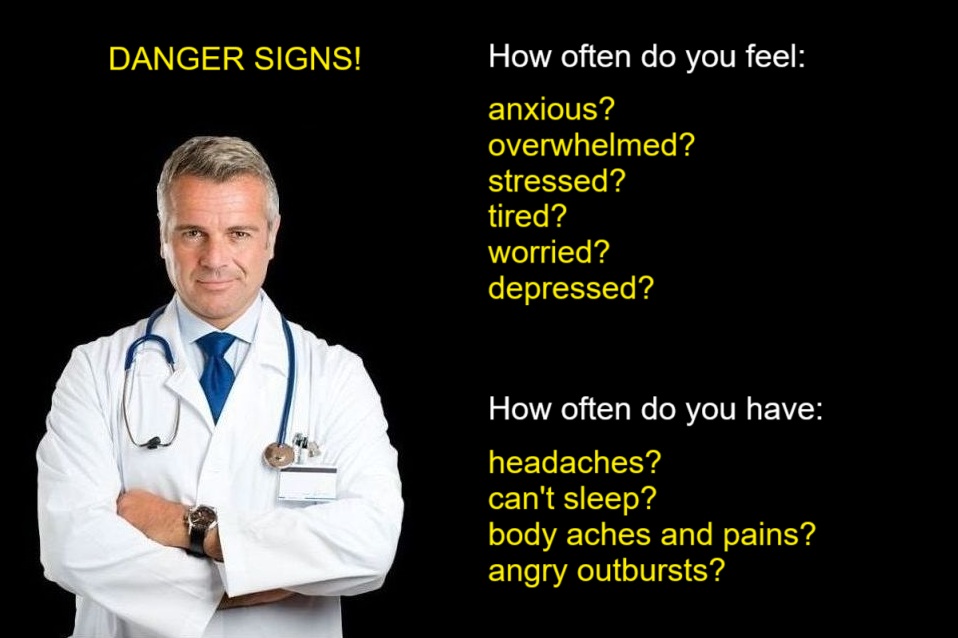The current economic climate, characterized by persistent inflation and widespread layoffs, is not merely a financial challenge; it’s a potent catalyst for a hidden mental health crisis. While news headlines focus on rising prices and unemployment rates, the insidious impact on individual well-being often goes unnoticed. This article delves into the complex interplay between economic hardship and mental health, specifically focusing on how inflation and layoffs are fueling anger and depression, and what steps can be taken to mitigate these adverse effects.
I. The Economic Landscape: A Perfect Storm for Mental Distress
The convergence of inflation and layoffs creates a uniquely stressful environment. Inflation erodes purchasing power, making it harder for individuals and families to afford basic necessities. Simultaneously, layoffs lead to job insecurity and financial instability, further exacerbating anxieties and uncertainties about the future. This combined pressure can overwhelm coping mechanisms and significantly impact mental health.
- Inflation’s Insidious Grip: The constant rise in the cost of goods and services forces individuals to make difficult choices, often sacrificing essential needs to stay afloat. This can lead to feelings of helplessness, frustration, and resentment, contributing to a decline in overall well-being.
- The Axe of Layoffs: Job loss extends beyond financial strain, impacting one’s sense of identity, purpose, and self-worth. The fear of unemployment, coupled with the actual experience of being laid off, can trigger intense feelings of anxiety, anger, and depression.
II. Anger: A Fiery Response to Economic Insecurity
Anger is a natural human emotion, but when fueled by economic hardship, it can become a destructive force. The frustration of seeing hard-earned money devalued by inflation, coupled with the fear and uncertainty of job loss, can manifest as intense anger directed at various targets.
- Sources of Anger: Individuals may direct their anger towards employers perceived as responsible for layoffs, government policies that seem ineffective in addressing inflation, or even themselves for perceived financial missteps.
- Manifestations of Anger: This anger can manifest in various ways, including irritability, aggression, cynicism, and a general sense of resentment towards the world. It can strain relationships, impact work performance, and contribute to a cycle of negativity.
- The Dangers of Uncontrolled Anger: Uncontrolled anger can lead to impulsive decisions, strained relationships, and even physical health problems. It’s crucial to recognize the root causes of anger and develop healthy coping mechanisms for managing it.
III. Depression: The Weight of Economic Despair
Depression is a serious mental health condition characterized by persistent sadness, loss of interest in activities, and feelings of hopelessness. The economic pressures of inflation and layoffs can significantly increase the risk of developing depression.
- The Cycle of Despair: Financial strain can lead to feelings of hopelessness and helplessness, which are key symptoms of depression. The inability to provide for oneself or one’s family can erode self-esteem and create a sense of despair.
- Symptoms of Depression: Common symptoms of depression include persistent sadness, loss of interest in hobbies, changes in appetite or sleep patterns, fatigue, difficulty concentrating, and thoughts of death or suicide.
- The Impact on Daily Life: Depression can significantly impair daily functioning, making it difficult to work, maintain relationships, and care for oneself. It’s important to recognize the signs of depression and seek professional help.
IV. The Interplay of Anger and Depression:
Anger and depression are not mutually exclusive; they can often coexist and even fuel each other. The frustration and resentment associated with anger can contribute to feelings of hopelessness and despair, while the isolation and withdrawal associated with depression can exacerbate feelings of anger and irritability.
- A Vicious Cycle: Individuals may turn to anger as a way to mask or cope with underlying feelings of depression. However, this can be a maladaptive coping mechanism that ultimately worsens both anger and depression.
- The Importance of Addressing Both: Effective mental health interventions need to address both anger and depression simultaneously. Identifying the root causes of both emotions and developing healthy coping strategies is essential for breaking the cycle.
V. Strategies for Coping and Building Resilience
While the economic climate may be challenging, there are steps individuals can take to mitigate the impact on their mental health and build resilience.
- Acknowledge and Validate Feelings: Recognize that feeling angry, anxious, or depressed in response to economic hardship is normal and valid. Acknowledging these feelings is the first step towards managing them.
- Practice Self-Care: Prioritize self-care activities that promote well-being, such as exercise, healthy eating, adequate sleep, and spending time in nature.
- Build a Support Network: Connect with friends, family, or support groups to share experiences and offer mutual support. Talking to others who understand what you’re going through can be incredibly helpful.
- Manage Finances Wisely: Develop a budget, prioritize essential expenses, and explore options for reducing debt. Taking control of finances, even in small ways, can reduce anxiety and feelings of helplessness.
- Seek Professional Help: If feelings of anger or depression are overwhelming or interfering with daily life, seek professional help from a therapist or counselor. Cognitive Behavioral Therapy (CBT) and other therapeutic approaches can be effective in managing these emotions.
- Mindfulness and Relaxation Techniques: Practice mindfulness techniques, such as meditation or deep breathing exercises, to reduce stress and promote relaxation.
- Focus on What You Can Control: While economic circumstances may be beyond individual control, focus on what you can control, such as your attitude, your daily routines, and your relationships.
VI. The Role of Employers and Policymakers
Employers and policymakers also have a crucial role to play in mitigating the mental health crisis caused by economic hardship.
- Employer Support: Employers can provide resources such as employee assistance programs (EAPs), mental health benefits, and financial counseling services to support their employees’ well-being. They can also foster a supportive work environment that encourages open communication and reduces stigma around mental health.
- Government Policies: Policymakers can implement policies that address the root causes of economic hardship, such as affordable housing initiatives, job training programs, and unemployment benefits. They can also invest in mental health services and raise awareness about mental health issues.
VII. Conclusion: A Call to Action
The hidden mental health crisis fueled by inflation and layoffs demands our attention. By recognizing the complex interplay between economic hardship and mental well-being, we can take proactive steps to support individuals and communities. It is crucial to acknowledge the validity of feelings of anger and depression, prioritize self-care, build support networks, and seek professional help when needed. Furthermore, employers and policymakers have a responsibility to create supportive environments and implement policies that address the root causes of economic hardship. By working together, we can navigate these challenging times and build a more resilient and mentally healthy society. The ripple effects of ignoring this crisis will be significant, impacting productivity, relationships, and overall societal well-being. It is time to prioritize mental health alongside economic recovery.










